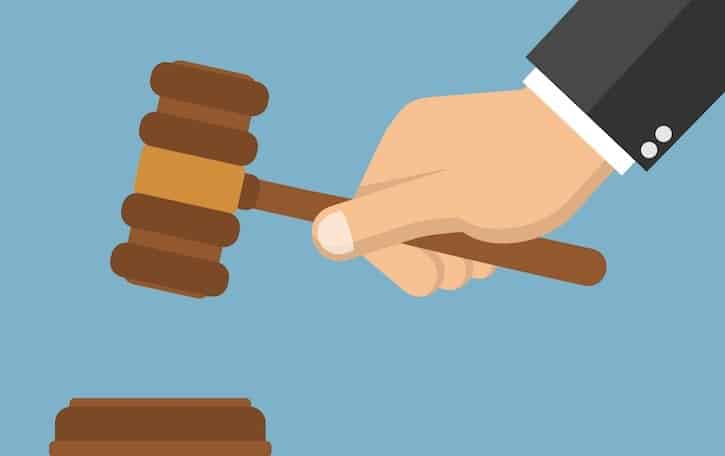
In May of 2016, the U.S. Supreme Court ruled in Spokeo, Inc. v. Robins, that before a plaintiff could pursue a lawsuit for a violation of a federal law, they must first prove that they actually incurred “concrete” injury because of that violation. Why does this matter for text message marketing?
The Telephone Consumer Protection Act (TCPA) is a federal law, which means plaintiffs looking to sue for text message marketing messages that they believe violated the TCPA, now have to first prove that they incurred “concrete” injury because of the violation. Want more information on Spokeo, Inc, v. Robins, and how it impacts text message marketing and TCPA litigation, click here.
Sounds like a challenge to prove that receiving an unwanted phone call or text message causes “concrete” injury, but a federal judge in West Virginia just ruled that in the case of Diana Mey v. Got Warranty Inc. et al., case number 5:15-cv-00101, receiving an unwanted robocall does in fact cause concrete harm. How so? According to the federal judge, an unwanted robocall causes concrete harm in two different ways, the first being tangible, which includes the following:
- For consumers with prepaid cell phones or limited-minute plans, unwanted calls cause direct, concrete, monetary injury by depleting limited minutes that the consumer has paid for or by causing the consumer to incur charges for calls.
- Unwanted calls cause direct, concrete, monetary injury by deplete a cell phone’s battery, and the cost of electricity to recharge the phone is also a tangible harm.
According to the same federal judge, unwanted robocalls can also cause intangible injuries, regardless of whether the consumer has a prepaid cell phone or a plan with a limited number of minutes. These intangible injuries include the following:
- Invasion of privacy.
- Intrusion upon and occupation of the capacity of the consumer’s cell phone.
- Wasting the consumer’s time or causing the risk of personal injury due to interruption and distraction.
Based on the above, this West Virginia federal judge dismissed the defendant’s motion to have the case tossed out, clearing the way for Diana Mey to proceed with her lawsuit.
 To get a better understanding of how this judge’s recent ruling in Diana Mey v. Got Warranty Inc., will affect text message marketing, in addition to current and future Telephone Consumer Protection Act lawsuits, we reached out to notable TCPA attorney, and friend of Tatango, Adam Bowser at Arent Fox LLP for his comments.
To get a better understanding of how this judge’s recent ruling in Diana Mey v. Got Warranty Inc., will affect text message marketing, in addition to current and future Telephone Consumer Protection Act lawsuits, we reached out to notable TCPA attorney, and friend of Tatango, Adam Bowser at Arent Fox LLP for his comments.
Below are Adam Bowser’s comments regarding the Supreme Court’s Spokeo decision, and more recently the Mey decision and how they’ll affect text message marketing litigation.
In the wake of the Supreme Court’s Spokeo decision, reactions were mixed on what impact the decision would have on your run-of-the-mill TCPA compliant. The TCPA plaintiffs’ bar argued that Spokeo ultimately would have no impact on their cases because, they reasoned, the Supreme Court simply remanded the case back to the lower court to conduct the analysis required under existing precedent. On the other hand, some TCPA defense attorneys believed Spokeo could be a silver bullet that could kill a TCPA case at the motion-to-dismiss phase on the ground that unsolicited calls or texts did not really cause the recipient “concrete” injury.
While there was some superficial appeal to this latter view of Spokeo, a decision like Mey throws cold water on that interpretation. In fact, the court in Mey expressly held that “Spokeo appears to have broken no new ground” before going on to find that unsolicited calls to cell phones cause concrete injury in a number of different ways, both tangible and intangible. Of course, this is just one decision from outside the jurisdictions that handle the most TCPA litigation – particularly the California, Florida, Illinois and Washington federal courts where I have primarily litigated – so no other courts are bound to follow this decision. Essentially, the decision in Mey will only be as persuasive as the judge’s reasoning, and different courts are free to adopt a higher threshold of concrete injury than the court set in Mey.
My own take is that for companies facing TCPA litigation, Spokeo still can be incredibly helpful, but defendants have to be prepared to take the long view. To be sure, TCPA complaints can still be susceptible to a direct attack on the ground that the plaintiff has failed to plead concrete injury (among other issues), but a defendant may get the most mileage out of Spokeo when opposing class certification. Specifically, the plaintiff generally needs to establish that each absent class member also has standing: that each class member has suffered the “concrete” injury at issue in Spokeo. This inquiry can require significant individualized inquiries, thus defeating the purpose of proceeding as a class action.
Unless you come to TCPA litigation with a background in telecom networking issues, however, you may be surprised by how unreliable the data that downstream carriers report back to the originating carrier or platform operator, particularly for messaging services. Thus, just because a carrier reports back that a message was delivered successfully doesn’t make it so. And just because a message was initiated, one should still determine whether downstream carriers reported a delivery failure for a given message. In short, as much as the TCPA plaintiffs’ bar thinks it’s as simple as multiplying the number of calls on a defendant’s outbound call list by $500, many more individualized questions need to be asked about each call detail record to establish that each message was in fact delivered. In other words, even though the TCPA attaches liability to the initiation of certain messages sent without the requisite consent, even under a plaintiff friendly decision like Mey, it’s the receipt of the message that causes the concrete injury required for Article III standing.
Companies facing TCPA litigation need to keep this in mind if they cannot have their case dismissed on other grounds and consult with a class-action defense attorney that has experience with these issues. Finally, to clarify one issue that gets confused regarding the Article III standing that was at stake in Spokeo, this relates to a federal court’s subject matter jurisdiction over the case. Unlike the issue of whether a court has personal jurisdiction over an out-of-state defendant, arguments related to the court’s subject matter jurisdiction generally cannot be waived and can even be raised for the first time on appeal. Thus, even if a class has been certified against your company, or you’re appealing an adverse ruling, you should be able to raise these arguments even if you could have done so sooner.
Want to speak to Adam directly about TCPA compliance, or how this recent judge’s ruling could affect your text message marketing efforts, you can find Adam’s contact info on the Arent Fox website here.

